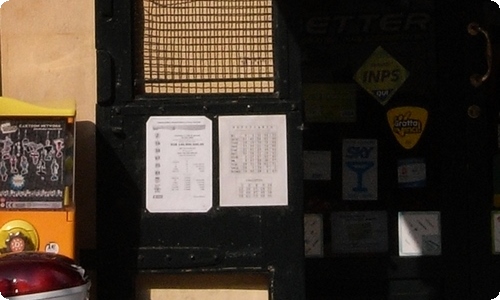英语十二单元的教案

英语十二单元的教案
教学目标
Teaching aims and demands:
本单元是复习课,复习的要点为第7至11单元中出现的语法现象和日常交际用语,学生在理解课文的基础上,能用自己组织的语言复述课文。
Teaching important and difficult points.
1.单词
tank, breath, exercise, fire, plastic, flow, attack, frighten, bend
2.词组
at that very moment, before long, bend over, carry away/ off, escape from, fall over, fit into, for a moment, for one thing (one reason), get away from, hold one’s breath, in front of, jump off, keep fish, lie still, look into, make a noise, the other day, pick up, put…in order, shout at, so as to, speed up, stand still, stare at, struggle to one’s feet, throw at, worse still
3.交际用语与句型
1)交际用语
A.表示建议的交际用语:
I suggest (that) you do sth.
You should do sth.
You ought to do sth.
You need to do sth.
B.复习经七至十一单元出现过的日常交际用语。
2)句型
We need to find one about 30 centimetres (cm) by 30 cm by 50 cm.
For one thing they keep the water clean.
Thoughts rushed through her head.
4.语法
复习第七至十一单元出现过的重点语法项目。
教学建议
对话分析
本文对话通过表达建议及要求的问与应答,对话较容易理解,对话描述Kate,Li Qun谈论如何养鱼的过程,教材中归纳出这些用语和表达法,如:I suggest (that) …. You should….. You ought to…..等,这些用语,在教材中的练习中给学生提供了练习与帮助。
课文建议
在Lesson 46中,教师主要通过图片展示、问与答,讨论及多媒体的形式来完成此课的教学内容,如以下方法:
方法一、教师搜集本课相关的一些动物图片,作为导入课给学生展示。
方法二、教师播放本课的多媒体视频,让学生从听与视觉了解本课的`内容。
方法三、教师给学生一段的时间精读和略读本课文,给出问题让学生来回答。
方法四、教师把学生分成小组进行讨论:动物园与动物。练习复述整个故事经过。
重点难点
1.frighten v.
①使某人感到恐惧,使害怕
Sorry, I didnt mean to frighten you.
Loud traffic frightens horses.
②惊吓某人,使某人恐怖或惊愕
The children was frightened to death by the violent thunderstorm.
You frightened me out of my life by knocking on the window like that.
③吓得某人做某事 frighten sb. into doing
News of the robberies frightened many people into fitting new locks to their doors.
④其形容词frightened意为恐惧的,害怕的;frightening,引起恐惧的,惊恐的
Frightened children were calling for their mothers.
He looked very frightened as he spoke.
It is frightening even to think of the horrors of nuclear war.
2.fire n.
①火,不可数名词
There is no smoke without fire.
②火灾,火炉,火堆,可数名词
A big fire broke out last night.
They made a fire to keep the animals away.
v.③射击,开火
The officer ordered his men to fire.
They fired at the running animals.
④解雇,辞退
The boy was fired after his second time to be late.
3.enough
①n.足够,充足,后常接for短语或动词不定式,还可接of短语,of后接名词或代词,接名词时,名词前必须有限定词。
Enough has been said on how to do it.
He has had enough to eat.
He was enough of a fool to do that.
②adj.充足的,足够的,可修饰不可数名词或可数复数名词,可前置也可后置。
We have enough time to finish the work.
There are seats enough for the people coming to the meeting.
③adv.充足地,足够地,十分;修饰形容词、副词、动词,必须后置
The book is easy for me to read.
He knows well enough what I mean.
4.agree 同意,赞同,后可接with, to, on
agree with与某人意见一致,多接人或指气候、食物适合某人或指一物与另一物相符。
The professor agrees with what his students have said.
The climate here doesnt agree with Xiao Wang.
His stories agree with hers in everything.
agree to后接具体表建议、计划、安排办法意见之类的名词。
The patient doesnt agree to the doctors plan.
All the pupils agree to our teachers proposal.
agree on 就……取得一致意见
All the members agreed on the date of the next meeting.
Most of the workers agree on the plan of work.
5.very adv.很,非常,修饰形容词、副词,也可作形容词,常与the, this, that ,my等连用,以加强语气,意为”正是这个,正是所要的,恰好,极其”,相当于just,但just是副词,若与名词连用,必须放在冠词之前。
[辨析]
[误]This is the just book I want.
[误]This is very the book I want.
[正]This is just the book I want.
[正]This is the very book I want.
6.be about to 正准备做某事,即将做某事,通常与when连用,表示就要……突然……
I was about to leave when the telephone rang.
He was about to tell me the secret when she came back.
而句型be doing…when表示正在……突然……
I was going on my way home when I heard a call from behind.
The teacher was just beginning the lesson when the door opened.

文档为doc格式



